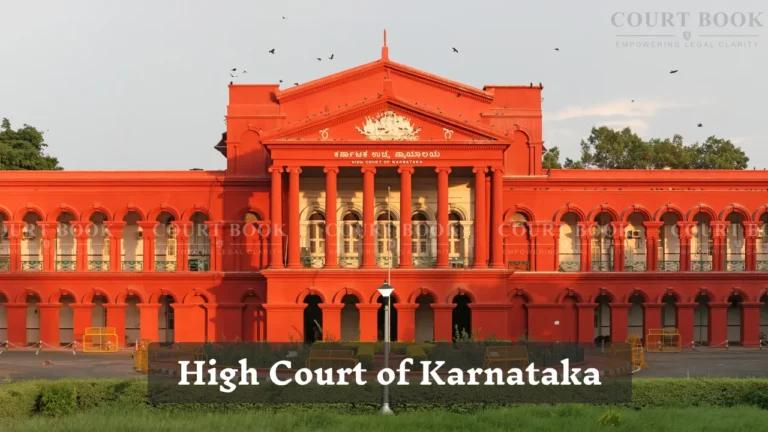The Karnataka High Court has delivered a significant judgment that protects freedom of speech, especially for those working on temporary or contract positions in academic institutions. On July 8, 2025, the Court set aside the termination order of Dr. Manjunath R, a guest lecturer in the Department of Journalism and Mass Communication at Bengaluru North University, Kolar. The decision came after Dr. Manjunath made a press statement about improper utilization of government grants in the Kolar district, which he claimed were not reaching the people for whom they were intended.
Background of the Case
Dr. Manjunath was initially appointed as a guest lecturer in 2018 and was repeatedly reappointed over successive academic years until 2024-25. During the tenure of his last appointment, he was terminated by an order dated April 9, 2025, which also prohibited him from applying for the position again for the next three years. The University based this decision on 12 allegations, including his remarks to the press, which were claimed to have targeted government officials and harmed the University's image.
Read Also:- Karnataka High Court: Marriage Not Registered Under Foreign Marriage Act Still Valid Under Personal Law
Dr. Manjunath challenged this termination order through a writ petition, arguing that it was passed without giving him a fair hearing and that his right to freedom of speech under Article 19(1)(a) of the Constitution was being violated.
Court’s Analysis on the Newspaper Statement
The core of the issue revolved around Dr. Manjunath’s statement to the press, where he raised concerns regarding the misuse of funds in a district marked as a "mine-affected area". He clarified that he had not made any accusations against the University or its officers. Instead, as a concerned citizen and resident of Kolar, he exercised his constitutional right to speak in public interest.
The Court emphasized:
“As the resident of the Kolar District, in the public interest, he made the paper statement since it is the right guaranteed to him under Article 19(1)(a) of the Constitution of India. Therefore, the newspaper statement made by the petitioner is not misconduct.”
Read Also:- Petition Challenges Kannada Mandate in Non-State Schools, Karnataka HC Gives State 3 Weeks
It also cited the landmark Supreme Court judgment in Kameshwar Prasad v. State of Bihar (1962), which held that peaceful and non-disruptive demonstrations fall under the umbrella of free speech.
The Court went further to reference the U.S. Supreme Court decision in Pickering v. Board of Education, where it was ruled that unless a statement made by a public employee is knowingly false or reckless, it cannot be the sole reason for dismissal from public service.
Allegations and Procedural Violations
Out of the 12 allegations against Dr. Manjunath, only two had notices issued. The Court found that no material evidence was provided along with these notices, and the lecturer did not admit to any misconduct in his replies. One of the more serious allegations involved harassment of women employees, but the matter had not even been referred under the Sexual Harassment of Women at Workplace Act, 2013, and no supporting documentation was presented.
The judgment underlined:
“The impugned termination order is stigmatic and the same has been passed without giving any opportunity of hearing to the petitioner. It is well settled law that, if the order of termination is stigmatic, the principle of natural justice has to be followed.”
The Court rejected the University’s argument that, since Dr. Manjunath was a contractual employee, an inquiry wasn’t necessary. The bench referred to the recent Supreme Court ruling in Swati Priyadarshini v. State of Madhya Pradesh (2024), which made it clear that even contractual employees must be given a fair hearing before issuing any stigmatic orders.
The High Court ruled in favor of Dr. Manjunath, quashing the termination order and directing the University to reinstate him. However, it granted the University the liberty to conduct a fresh inquiry in accordance with law if it so chooses.
Case title:- Dr. Manjunath R. vs. The Vice Chancellor, Bengaluru North University & Others















